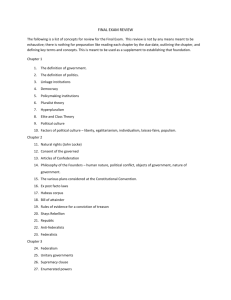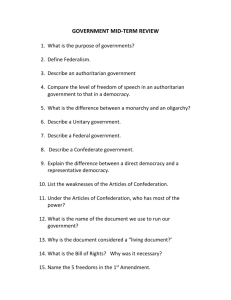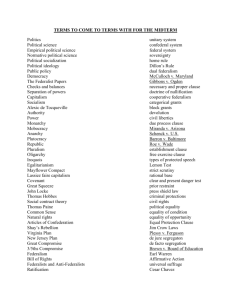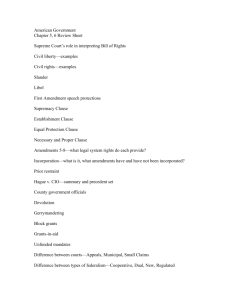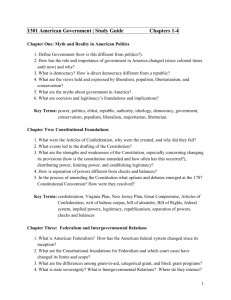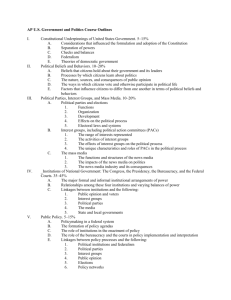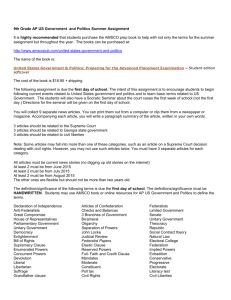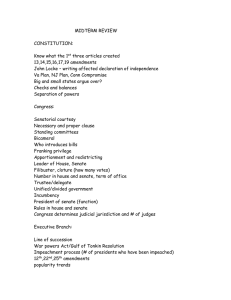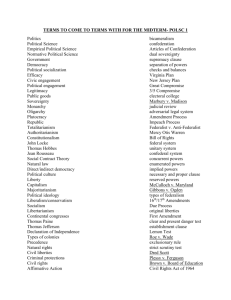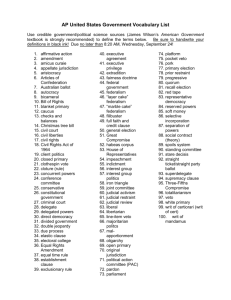terms to come to terms with for the midterm
advertisement
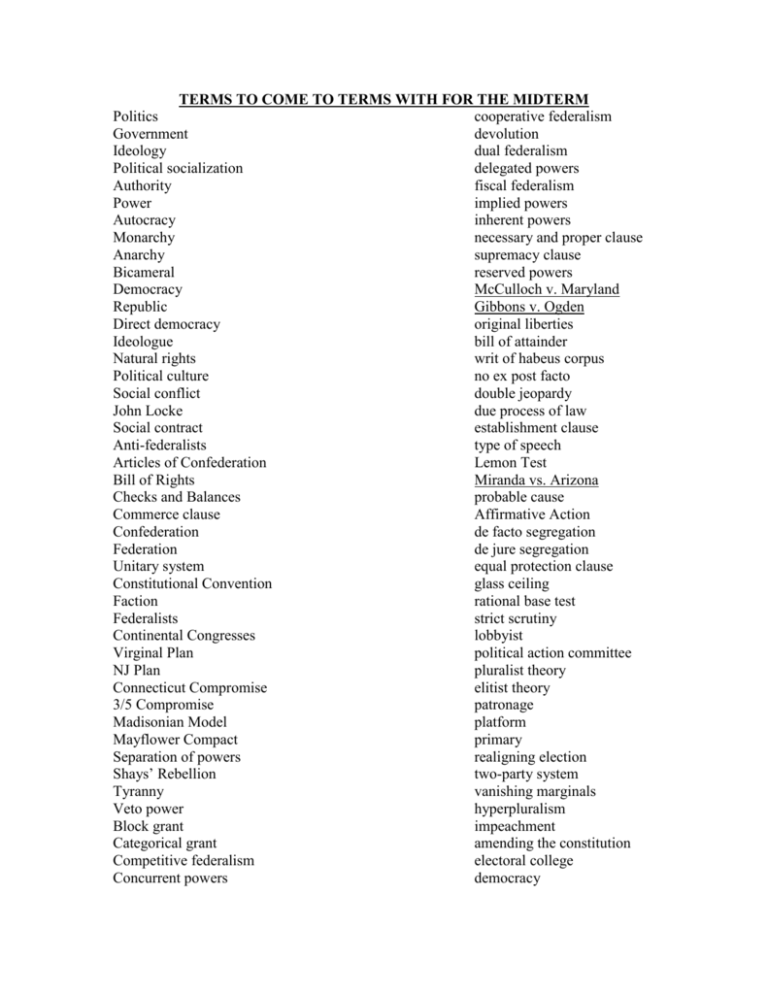
TERMS TO COME TO TERMS WITH FOR THE MIDTERM Politics cooperative federalism Government devolution Ideology dual federalism Political socialization delegated powers Authority fiscal federalism Power implied powers Autocracy inherent powers Monarchy necessary and proper clause Anarchy supremacy clause Bicameral reserved powers Democracy McCulloch v. Maryland Republic Gibbons v. Ogden Direct democracy original liberties Ideologue bill of attainder Natural rights writ of habeus corpus Political culture no ex post facto Social conflict double jeopardy John Locke due process of law Social contract establishment clause Anti-federalists type of speech Articles of Confederation Lemon Test Bill of Rights Miranda vs. Arizona Checks and Balances probable cause Commerce clause Affirmative Action Confederation de facto segregation Federation de jure segregation Unitary system equal protection clause Constitutional Convention glass ceiling Faction rational base test Federalists strict scrutiny Continental Congresses lobbyist Virginal Plan political action committee NJ Plan pluralist theory Connecticut Compromise elitist theory 3/5 Compromise patronage Madisonian Model platform Mayflower Compact primary Separation of powers realigning election Shays’ Rebellion two-party system Tyranny vanishing marginals Veto power hyperpluralism Block grant impeachment Categorical grant amending the constitution Competitive federalism electoral college Concurrent powers democracy STUDY QUESTIONS FOR THE MIDTERM 1. Explain what is meant by the terms politics and government. 2. Describe three factors that contribute to a person’s political socialization. 3. Explain the difference between empirical politics and normative politics. 4. Identify two types of governmental systems. 5. Summarize some of the basic principles of American democracy and the basic American political values. 6. Describe the various debates that occurred at the constitutional convention. 7. What were three complaints that the colonists had against the monarch and explain how these were rectified in the Bill of Rights? 8. What were two major compromises made by the delegates at the Constitutional Convention? 9. Discuss the Federalist and the Anti-Federalist positions with respect to ratifying the Constitution. 10. Explain step by step how the constitution can be amended. 11. Explain step by step how a president can be impeached and then removed from office. 12. Explain the Framers purpose in creating the Electoral College. What was the Supremacy Clause? 13. What was the Necessary and Proper Clause? 14. Explain what federalism means. How is it different from a unitary and confederal system? 15. What were the Articles of Confederation and why did they fail? 16. Describe the five categories of power that have evolved in our Federal System. 17. What did the case McCulloch v. Maryland entail and what precedence did it set? 18. What did the case Gibbons v. Ogden entail and what precedence did it set? 19. Summarize the evolution of federal-state relationships in the U.S. over time. 20. Describe developments in federalism under the Bush administration. 21. Explain the various types of federalism. 22. What are civil liberties, natural rights, and human rights? 23. Explain the constitutional basis for our civil liberties. 24. List and describe the freedoms guaranteed by the First Amendment. Explain how the courts have interpreted and applied these freedoms. 25. What is the difference between pure speech, speech plus, and symbolic speech? When is speech not protected? 26. What are the seven original liberties? Define the Latin liberties. 27. Summarize how the Constitution and the Bill of Rights protect the rights of accused persons. 28. What is the Exclusionary Rule? 29. Explain the case Miranda v. Arizona. What precedence did it set? 30. Explain the constitutional basis for our civil rights and for laws prohibiting discrimination. 31. Discuss the reasons for the civil rights movement and the changes it effected in American politics and government. 32. Describe the political and economic achievements of women in this country over time. Identify some obstacles to equality. 33. Explain what affirmative action is and why it has been so controversial in this country. 34. What are vanishing marginals and how is this related to hyperpluralism?
